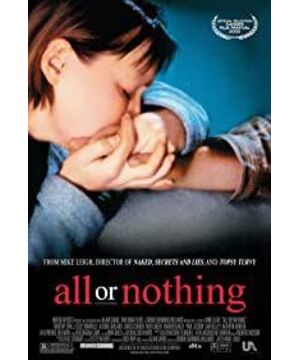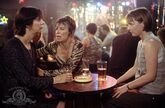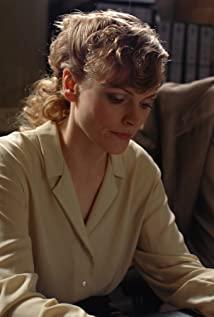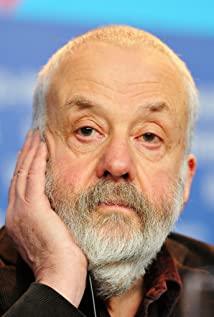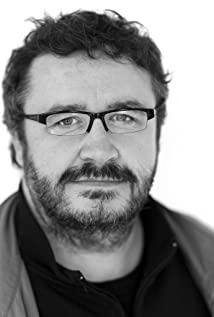Let me talk about "To the Sea of Fury" first, Xu Anhua. I have watched "Forty Women", "Forty Men" and "Half Life". I have never watched "Aunt's Postmodern Life" and "Day and Night in Tian Shui Wai". I heard that the latter two are laughing with tears. The four movies I have seen are doomed tragedies. I wonder if Xu Anhua’s own hardship has turned a young literary girl into a social observer who likes to "add a wreath" to the film and reveals a little bit of hope. This is not to say that her early works were wishful thinking and immaturity. On the contrary, as a standard bearer of Hong Kong's New Wave, the compassion and pain from the bottom of the people are planted in the bottom line, which requires such strong subjective emotions. , Can turn into creative passion to explain the proposition, not to mention the four films, except for "Half Life", the perception is so calm and objective.
"Departing to the Angry Sea" tells the story of Japanese journalists traveling to Vietnam to take news photos and local residents and government officials. It is filled with a lot of bloody violence. The bloody violence is handled extremely calmly, which makes people shudder. A Japanese friend played by Lin Zixiang, armed with a Nikon brand camera, entered the country of another country, and used cultural propaganda as a reason to collect materials that were unfavorable to Vietnam. In the film, he was portrayed as a righteous, persistent, popular and dedicated international friend, winning almost all audiences. However, just imagine that when Antonioni entered China and filmed the documentary "China", didn't it mean that he received the same treatment. From the perspective of citizens of every country, if outsiders peep into the privacy of their own country and use technical means to expose this disgraceful fact to the international community, then everyone will be humiliated, so I don’t think it’s necessary to be a film. The behavior of Chinese government officials gnashes their teeth, and there is no need to cry for Lin Zixiang’s miserable experience. Life is so unbearable. Political power and national security are the kingly way. People in it, no matter who they are, can do nothing. I think this is the interpretation of Director Xu Anhua. The purpose of this movie.
"Nothing" was originally called "All or Nothing" in English, and also translated "Broken Wing Angel". It tells a trivial story about a disharmonious family and the family's more disharmonious neighbors. The whole film is shrouded in an extremely depressing atmosphere. among. I want to explain the meaning of the three titles, which should be able to touch the ultimate proposition of the movie. First of all, the family described in the movie has nothing in terms of economic wealth. His father drove a taxi and he didn’t want to get up in the morning. He often met passengers who refused to pay. His mother worked as a cashier in a supermarket and often talked to her. Unrestrained colleagues attending a song in the bar, but frowning deeply. The daughter takes care of a group of elderly people facing death in the nursing home. She is often instilled with strange thoughts before death. The son has nothing to do and is full of swear words. The family at the dinner table is the only one who can During the time together, the mother blamed the father, the son swears, and the father and daughter are quite silent. This is "nothing" and there is nothing left to lose. Later, the son was diagnosed with a congenital heart disease. The family broke into eighteen levels of hell. All or Nothing is a comment on Mike Lee's attitude: a family can have everything or nothing. The key is not the abundance of material wealth, but the responsibility of connecting a family. As for "Broken Wing Angel", I think it is the most brainless of the three names. It means that a group of teenagers who could have become angels cannot fly under the influence of family and society. At the same time, the protagonist’s family suffers from obesity. The allusion. The rhythm of the movie is just right, and the scene scheduling, especially when the son suffers from a heart disease, the four of the family’s cross-montage editing in this tense is very accurate.
I always think that the low-level stories are easier to move people, especially the truth, goodness, beauty, disharmony, and maybe not true, but it's easy to cut onions in the corner of the eye. The two films do not try to portray the struggle history of small people, but rather describe the helplessness under the extreme misery of living, just like Lin Zixiang set fire all over his body at the end, dancing wildly in the big shots, like the boy suffering from a heart attack on the lawn. The upper gasps are dying, these scenes are not sensational, but they are fistful. All the audience can do is spread their hands and let their fate torture. At the end of the film, no one gave a bright ending. "Broken Wing Angels" may have a little bit, but it may return to the old road at any time. In any case, the film is over, they all use things that are exclusive to humans but not destiny—— Emotion-what has changed. If it is a fantasy to defeat fate with the magic of love, then it is enough to change the bit with love.
PS, the two low-cost movies actually have big names. There is Andy Lau in "Death to the Wrath", and "Harry Potter and the Prisoner of Azkaban" in "Nothing" plays Pettigrew Peter (Wormtail) and the knight The conductor on the bus... Wormtail's performance can only be described in three words... handsome...
View more about All or Nothing reviews


